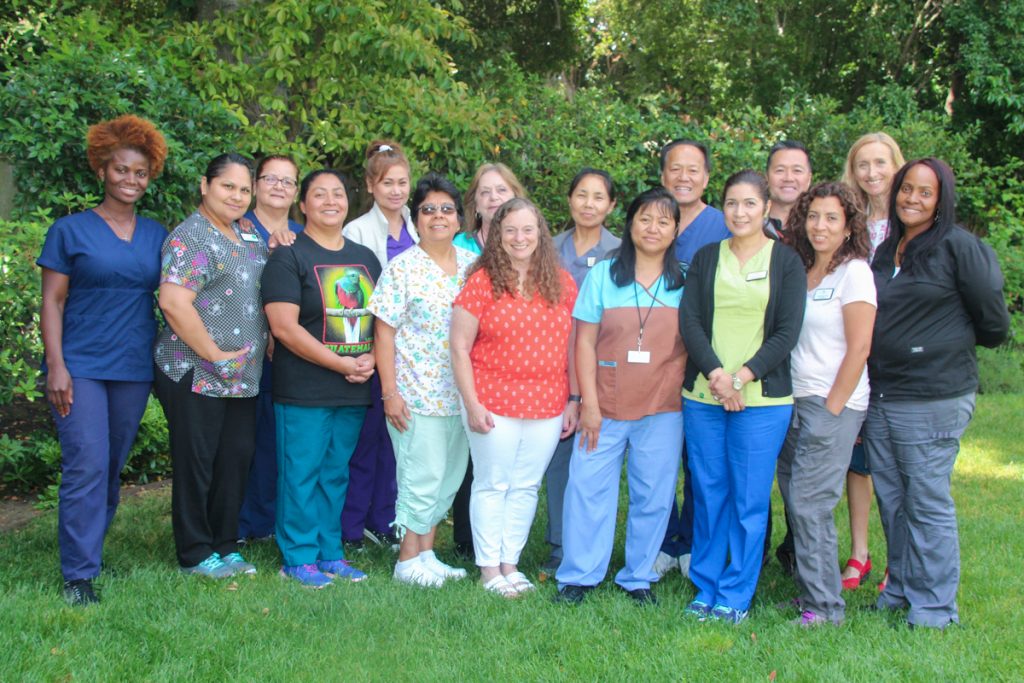Home health aides are a healing presence for patients and families
Our home health aides (HHAs) often spend more time in patients’ homes than anyone else on the care team. Many times, they become trusted friends and confidants, developing close relationships with patients.
HHAs are caregivers, personal attendants, teachers, companions, and much more. They help patients get in and out of bed, bathe, and wash their hair – even if the patient is bed-bound. They change linens. They can offer light massage and apply lotion, which many people find soothing.
 “Our HHAs teach families how to look after their loved ones – most of them have never done this kind of care before,” says Elle James, HHA Manager and Senior Nurse Educator. “Most importantly, they help patients maintain their dignity and feel cared for.”
“Our HHAs teach families how to look after their loved ones – most of them have never done this kind of care before,” says Elle James, HHA Manager and Senior Nurse Educator. “Most importantly, they help patients maintain their dignity and feel cared for.”
Our agency currently has 25 home health aides, each with years of experience. To a person, they say that one of the things they love about working at Mission Hospice is that they are given the time they need to be fully present.
Ana Juarez says this means “we can give the patient our time and attention. We don’t have to rush. And we are trusted to know what is best for the patient.”
A visit from an HHA can be something to look forward to, especially for patients who are house-bound. As Tommy Joe says, “we can be the highlight of their day.”
His colleague Mitch Park concurs. “I ask them to share their stories, and that’s what they look forward to. They could do without the bath!”
Finding a connection with a patient is a good way to establish rapport and trust. Tommy says that he is often able to connect through sports. “It gives us something to talk about and share,” he says.
Mitch agrees. “Usually when someone has a terminal disease, people treat them differently,” he says. “I walk in and I say, ‘Did you see the game last night?’ It’s like a breath of fresh air for them.”
JoGrace Kotico sometimes connects with people through music. She remembers a patient who had served in the Army, who really liked the national anthem. “He wanted me to sing that to him as I cared for him,” she said, laughing about the difficulty of the tune. “I practiced in the car on the way to his house! And on the day he died, I was holding his hand and singing to him.”
These kinds of connections are one reason Mission Hospice is committed to keeping the same care team around patients who move between programs – say, from Palliative Care to Hospice. At a time when so much is changing in their lives, we can offer patients and families the comfort and stability of trusted relationships.
“We talk a lot about not just the physicality of the home health aide role, but the humanness of it,” says Elle. “They do so much more than just provide care. Our HHAs are a healing presence.”

